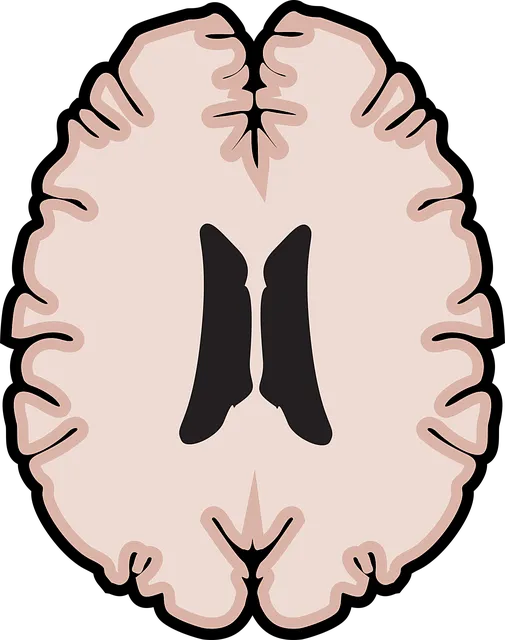Mental wellness self-assessment tools, integral to organizations like Kaiser Permanente's approach to healthcare in Broomfield, are designed to improve emotional well-being by offering personalized, culturally sensitive assessments. These tools, ranging from questionnaires to journaling exercises, promote self-awareness and proactive mental health management through early intervention and prevention strategies. By integrating evidence-based practices like Positive Thinking and Cultural Competency Training, Kaiser Permanente's mental health services in Broomfield foster holistic patient care while addressing societal influences on mental wellness, as highlighted by their commitment to Mental Health Policy Analysis. Furthermore, accessibility features ensure these tools cater to a diverse talent pool seeking Kaiser Permanente mental health jobs in Broomfield, empowering users to recognize and manage mental health crises effectively.
Mental wellness self-assessment tools play a crucial role in identifying and addressing individual mental health needs. This article explores the development of such tools, drawing insights from industry leaders like Kaiser Permanente’s approach to mental health jobs in Broomfield. We’ll delve into key components, evidence-based practices, accessibility enhancements, and usability for all users. By understanding these aspects, we can create effective self-assessment tools that promote better mental wellness.
- Understanding Mental Wellness Self-Assessment Tools
- Kaiser Permanente's Approach to Mental Health Jobs in Broomfield
- Identifying Key Components for Effective Self-Assessment Tools
- Integrating Evidence-Based Practices into the Development Process
- Enhancing Accessibility and Usability for All Users
Understanding Mental Wellness Self-Assessment Tools

Mental wellness self-assessment tools play a pivotal role in individual’s journey towards understanding their mental health status and overall well-being. These tools are designed to provide individuals with a means to assess their emotional, psychological, and social functioning, thereby fostering increased awareness of potential areas for improvement or concern. For instance, Kaiser Permanente mental health jobs in Broomfield often incorporate these tools as part of initial patient assessments, allowing healthcare professionals to tailor services to meet unique needs.
The development of such tools involves careful consideration of various factors, including cultural sensitivity and accessibility. Mental Health Awareness initiatives have led to the creation of diverse assessment methods, from standardized questionnaires to personalized Mental Wellness Journaling Exercises. These exercises guide individuals through reflective practices, encouraging them to explore thoughts, emotions, and behaviors in a safe and supportive manner. By integrating such tools into daily life, folks can actively contribute to their mental wellness, ultimately enhancing their overall quality of life.
Kaiser Permanente's Approach to Mental Health Jobs in Broomfield

Kaiser Permanente, a renowned healthcare organization, has been at the forefront of integrating mental health services into primary care settings. Their approach to mental health jobs in Broomfield, Colorado, serves as an exemplary model for community-based care. By incorporating mental wellness assessments and utilizing evidence-based practices, Kaiser Permanente aims to provide holistic patient care. The organization recognizes the importance of early intervention and prevention, ensuring that individuals receive support for their emotional healing processes.
This strategy not only focuses on treating symptoms but also promotes overall well-being. Through regular self-assessment tools, patients can monitor their mental health and identify potential triggers. Kaiser Permanente’s commitment to mental health policy analysis and advocacy ensures that their practices align with current research and community needs. This comprehensive approach has led to improved patient outcomes and increased accessibility to anxiety relief services in the Broomfield area.
Identifying Key Components for Effective Self-Assessment Tools

When developing self-assessment tools for mental wellness, it’s crucial to identify key components that ensure accuracy and effectiveness. These tools play a vital role in helping individuals understand their mental health status and guide them towards appropriate resources. The process should incorporate validated assessment models tailored to diverse populations, considering cultural sensitivity and accessibility. For instance, Kaiser Permanente mental health jobs in Broomfield often emphasize the integration of Emotional Intelligence (EQ) metrics to capture nuances in emotional regulation and social interactions.
Additionally, incorporating components that address historical trauma and its impact is essential, especially when developing tools for communities with a history of systemic discrimination or violence. This may involve integrating Trauma Support Services (TSS) protocols to ensure the assessment is inclusive and supportive. Further, aligning the self-assessment with current Mental Health Policy Analysis and Advocacy initiatives ensures that the tool stays relevant, addressing broader societal factors influencing mental wellness.
Integrating Evidence-Based Practices into the Development Process

When developing self-assessment tools for mental wellness, integrating evidence-based practices is paramount. Organizations like Kaiser Permanente, with its focus on Broomfield mental health jobs, have led the way in combining clinical expertise with innovative technology to create effective interventions. For instance, incorporating techniques such as Positive Thinking, Healthcare Provider Cultural Competency Training, and Mental Wellness Journaling Exercise Guidance can significantly enhance tool efficacy.
By drawing from research-backed methodologies, these tools become more than just assessments; they transform into powerful resources for personal growth and improved mental health outcomes. This approach ensures that users benefit from practices proven to be beneficial in real-world healthcare settings, fostering a holistic and supportive environment tailored to their unique needs and cultural backgrounds.
Enhancing Accessibility and Usability for All Users

Developing mental wellness self-assessment tools that are accessible and usable for all users is a key consideration, especially when aiming to cater to a diverse audience, including those seeking Kaiser Permanente mental health jobs in Broomfield. These tools should be designed with inclusivity in mind, ensuring they can be easily navigated by individuals from various age groups, abilities, and cultural backgrounds. By implementing user-friendly interfaces and clear language, you can enhance accessibility for people with learning disabilities or limited digital literacy.
For instance, integrating Crisis Intervention Guidance within the self-assessment process can empower users to recognize early warning signs of mental health crises. Similarly, incorporating Mental Health Education Programs Design elements can provide valuable insights into managing stress, anxiety, and other common mental health issues. Additionally, including a robust Risk Assessment component for Mental Health Professionals will enable practitioners to identify potential risks in their practice settings, fostering safer environments for both clients and practitioners alike.
Mental wellness self-assessment tools play a pivotal role in promoting individual well-being, especially in settings like Kaiser Permanente’s mental health jobs in Broomfield. By integrating evidence-based practices and prioritizing accessibility, these tools can effectively support individuals in navigating their mental health journeys. As highlighted throughout this article, careful consideration of key components ensures the development of robust self-assessment tools that cater to a diverse range of users, fostering a more inclusive and supportive environment for mental wellness management.






